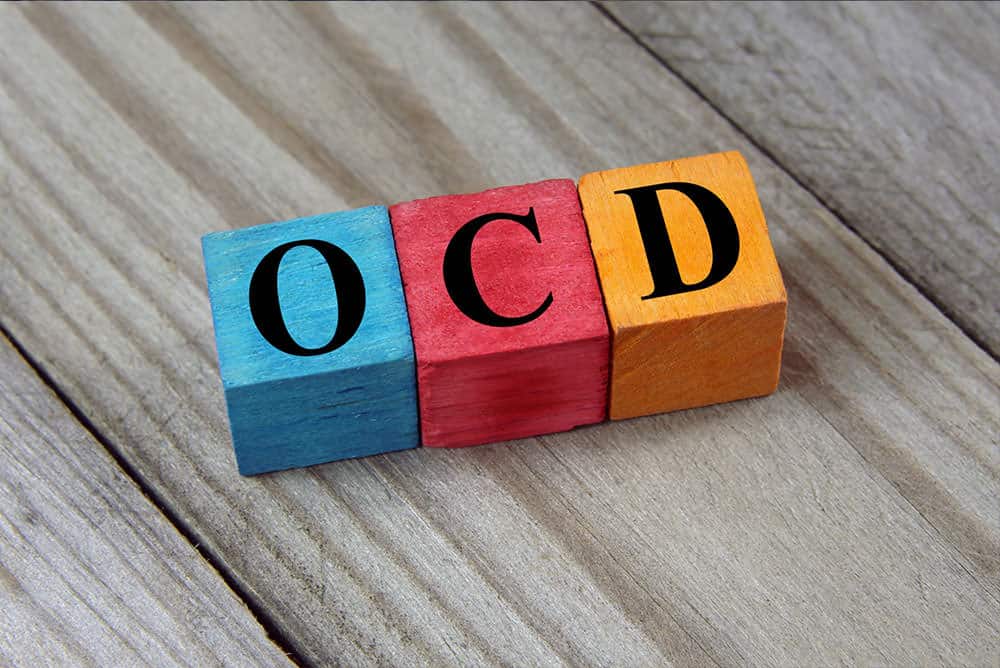Do you have a loved one who is living with OCD?
Obsessive Compulsive Disorder is a disease that affects millions of people throughout the world. Here in America, over 2.2 million adults alone have been diagnosed with a form of OCD. While there are various categories and degrees of OCD, the disorder does have the potential to overtake one’s entire life.
If you’re finding yourself nodding your head, it’s likely that you know someone who is suffering from OCD. If this is the case, you know firsthand how impactful OCD can become on one’s everyday life. You also know just how challenging it is for that individual as well as their loved ones to cope with such a disorder.
If you want to learn more about supporting a loved one with OCD, this one’s for you. We’re uncovering the six most useful ways to show your love and support to your loved one as they battle the challenges of OCD.
1. Learn About OCD
First things first, it’s important for you to learn as much about OCD as possible.
Whether this means reading about it online or in books, it’s valuable to gain as much information as you can about the disorder. After all, one of the best ways to better understand your loved one’s struggles is to understand what is happening in the first place.
In researching and engaging with professionals, you can gain a more significant understanding as to what OCD is. You can also contact a treatment program coordinator to learn about how they can help treat OCD.
2. Encourage Seeking Help
While you can provide support, it’s important to understand that you’re not responsible for the recovery of your loved one.
In this circumstance, it’s crucial to remind yourself that you’re not a professional. That being said, one of the best actions that you can take is to encourage your loved one to seek professional help.
This could be anything from seeing a therapist regularly to attending a treatment program. This treatment is an especially great option for those that are adamant about not taking medication to help relieve symptoms.
With the help of therapy, studies reveal that 50 percent of patients with OCD see an improvement in their condition.
3. Discuss Medication
While there’s no official cure for OCD, there is medication available that has proven constructive.
Taking medication is a helpful option for those that are unable or unwilling to attend therapy. While this medication has proven effective, it’s important to note that there are potential side effects with this medication.
For severe cases, you can also look to combine daily medication with recurring therapy. In combination, the two can be incredibly effective at helping to minimize the symptoms of OCD.
4. Don’t Enable Their Behavior
When living alongside a loved one suffering from OCD, you’re going to want to ensure that you’re not enabling their OCD behavior.
While it may be tempting to participate in your loved one’s rituals or accommodate their behavior, it’s always best to avoid doing so. Helping them may provide temporary relief, however, it only hurts your loved one in the long run.
You’re also going to want to be careful not to provide verbal reassurance to their actions. When they are displaying symptoms of their OCD, be sure not to normalize their actions and behavior.
5. Help to Create a Positive Home Environment
When a loved one is suffering from OCD, it’s only natural for the home environment to suffer as well. At a high level, OCD has the potential to create an obstructive and uncomfortable environment for all residents.
As a partner, you might be responsible for creating a healthy and positive home climate. While you must be careful not to accommodate their rituals and behavior, you must also encourage their positive behavior and improvements.
When you witness improvement within your partner, don’t hesitate to be forward in your applause. Not only is this going to encourage more positive behavior, but it’s also going to help foster a more positive home environment for all.
6. Learn How to Provide Support
One of the most common challenges in living with someone that suffers from OCD involves providing support. Too often
Some people have found it helpful to attend local support meetings. These meetings are open to the friends, family members and loved ones of those suffering from OCD. Here, you can learn how to cope as well as how to provide support to your loved one.
You can also participate in online communities that are created for those suffering from OCD as well as their loved ones. The members, as well as the group facilitators, may be helpful in providing guidance and advice based on their own experiences.
Living with OCD
If someone in your life is living with OCD, you’re well aware of how much it can affect almost every aspect of their life.
When it comes to research and advice, the large majority is directed to the individual suffering. As a result, there’s often very little information and advice available to those living alongside someone suffering from OCD.
Sure, these individuals are fortunate not to be suffering from the disorder themselves. However, they are living alongside the various effects and impacts of the disorder every single day.
This is why it’s so important to focus on helping both those suffering firsthand and those suffering secondhand. For the latter, allow this guide to help you learn how to provide the utmost support and assistance to your loved one who is suffering.
While there’s no official cure, it’s certainly possible to help manage everyday symptoms.
Do you feel that your loved one may need professional help? If so, please visit our mental health services page to learn more about how we can help you today.
Author
-

President, CEO & Founder at Northbound Treatment Network
Paul Alexander is the CEO, President & Founder of Northbound Treatment Network in Newport Beach, California. He believes wholeheartedly in transformational leadership, organizational health and effective, fully integrated substance use disorder and mental health treatment. With over 27 years of experience in behavioral healthcare, Paul has extensive knowledge of “in vivo” treatment modalities, clinical development, operations, strategy, marketing and financial planning. He has been widely recognized for his development of collegiate-based residential treatment programs for students in recovery and authored a research study at The University of California confirming this modality’s effectiveness.
Paul’s comprehensive professional experience, willingness to innovate, and emphasis on organizational health are vital factors in Northbound’s continued success. Paul received his Certified Addiction Treatment Specialist training at Saddleback College in Mission Viejo, CA, and was awarded Outstanding Alumni Service Award in 2002. Paul holds a Bachelor of Arts degree in Criminology, Law and Society, Summa Cum Laude, from University of California, Irvine, and a Juris Doctorate degree from Loyola Law School of Los Angeles. Paul currently serves on The National Association of Addiction Treatment Providers (NAATP) board. In addition, he serves on The Family Recovery Foundation board and The CarePossible board in Orange County; both organizations are committed to raising funds for family recovery and treatment for former military personnel. Paul is in recovery himself and lives in Orange County with his wife Silvana and his two young sons, Noah and Dean.










